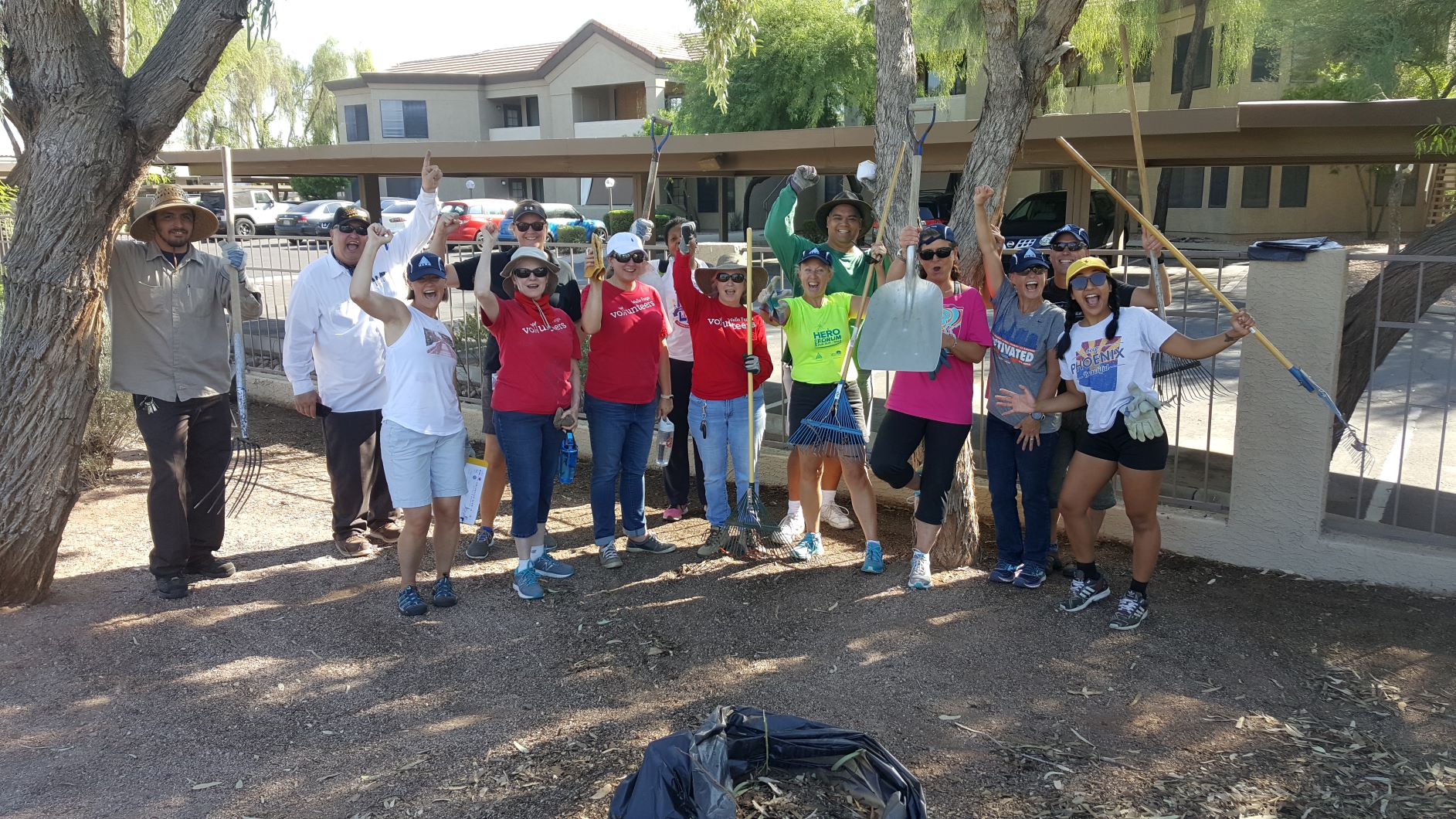April is National Volunteer Month. Since its beginning in 1997, HERO’s success has depended heavily on its member volunteers. You’ll see their names on our committee rosters, on our published peer-reviewed articles and consensus statements, and in the many expert support roles HERO needs to make our conferences and think tanks successful, from program planning to faculty recruitment, to abstract reviewers to panel moderators and, of course, to serving as expert presenters.
HERO’s paid staff consists of a small, but mighty team of 7 dedicated, part- and full-time professionals. We are able to research, educate and lead on matters of workplace health and well-being because of the dedicated volunteers who are researching, educating and leading beside us. Recently, Independent Sector released the new “Value of Volunteer Time”: $25.43/hour. Based on this estimate, HERO volunteers provide annually $200K worth of services toward our shared vision that all workplaces will positively influence the health and well-being of employees, families and communities. Extending this out a bit further, HERO member organizations are investing $200K annually in research that ultimately enhances the health and well-being of the nation.
While this is good for HERO, it’s also good for the individual volunteers and for their employers. HERO’s Senior Fellow Paul Terry discussed these ideas with Points of Light CEO Michelle Nunn in a 2012 issue of the American Journal of Health Promotion, highlighting the evidence: physical and mental health are positively impacted when serving others; employers that encourage volunteerism benefit from increased employee engagement and productivity; communities benefit from engaged citizens; and when the community benefits, so does business. Therefore, what’s good for HERO—and the health and well-being of the nation—turns out to be good for HERO’s volunteers and HERO member organizations.
In our continued effort to practice what we preach, HERO has adopted an internal volunteerism policy, encouraging each employee (remember, staff of 7) to volunteer the equivalent of one week’s worth of work throughout the year. Specifically, we encourage activities that both serve the community and also stretch our employees, for example, applying healthcare expertise in another sector. The full HERO Employee Volunteerism Policy can be found here.
In addition to pitching in professionally, HERO members and staff also take advantage of opportunities to serve the community. In 2018, HERO supported the local community of Ponte Vedra Beach, FL, host to the 2018 HERO Forum, when members and staff volunteered a few hours in the community garden as part of HERO’s David Anderson and Lisa Bugman Community Service Project. Not coincidentally, this initiative honors one of HERO’s founding members and his wife, both dedicated to community service.
“We’re all better off when we’re all better off.” ~ Eric Liu

HERO members and staff support the local community of Ponte Vedra Beach, FL, host to 2018 HERO Forum, by volunteering a few hours in the community garden as part of HERO’s David Anderson and Lisa Bugman Community Service Project.
It’s no coincidence, from my view, that April is also the Month of the Military Child. I make no secret of the fact that my husband is an Army officer, making our children by default “military kids.” Since the end of the military draft in 1973, the U.S. has relied on an all-volunteer force. My husband volunteered for military service, while my children were born into their status. Nevertheless, they have embraced its benefits and overcome each obstacle unique to this life. Often exchanging geographic roots for those of a virtual yet tight-knit military community and accepting air-kisses via FaceTime in place of physical hugs from their dad, their sacrifices have supported their father’s service to the nation and qualified them as national volunteers in service to the protection of the unalienable rights of life, liberty and the pursuit of happiness.
When I married my high school sweetheart in 1992, he had already completed Army ROTC (Reserve Officer Training Corps) through Duke University and had accepted a Reserve Commission into the Army as a Second Lieutenant. So, unlike my children, I selected into this life. Since 2001, when my husband was called to active duty, I’ve had numerous opportunities to volunteer, taking care of military families so that their Soldiers can do their jobs well. It has been an honor and a privilege to play with their children, provide a hot meal, welcome a returning Battalion, hold a grieving widow and, most recently, lead the development of a video for military spouse well-being. The Army recognizes the value of volunteer service beyond its Soldiers and monetizes the contribution based on actual volunteer time logs. According to U.S. Army Installation Management Command, 1.12 million volunteer hours were contributed in FY18, or $28.5 million. And I think I speak for them all: I wouldn’t trade a single minute of it.
“Be the change that you wish to see in the world.” ~ Mahatma Ghandi
References:
Cardinali, D. “The Value of Our Volunteers.” Independent Sector, April 11, 2019. Available at: https://independentsector.org/news-post/the-value-of-our-volunteers/
Liu, E. and Hanauer, N. The Gardens of Democracy: A New American Story of Citizenship, the Economy, and the Role of Government. Seattle, Washington: Sasquatch Books; 2011.
Terry, P.E. “Borrowing Ideas from a Sister Movement.” American Journal of Health Promotion, November/December 2012. DOI: 10.4278/ajhp.27.2.tahp
